Normal Word Problems Worksheets for Ages 3-9 - Page 2
45 filtered results
-
From - To
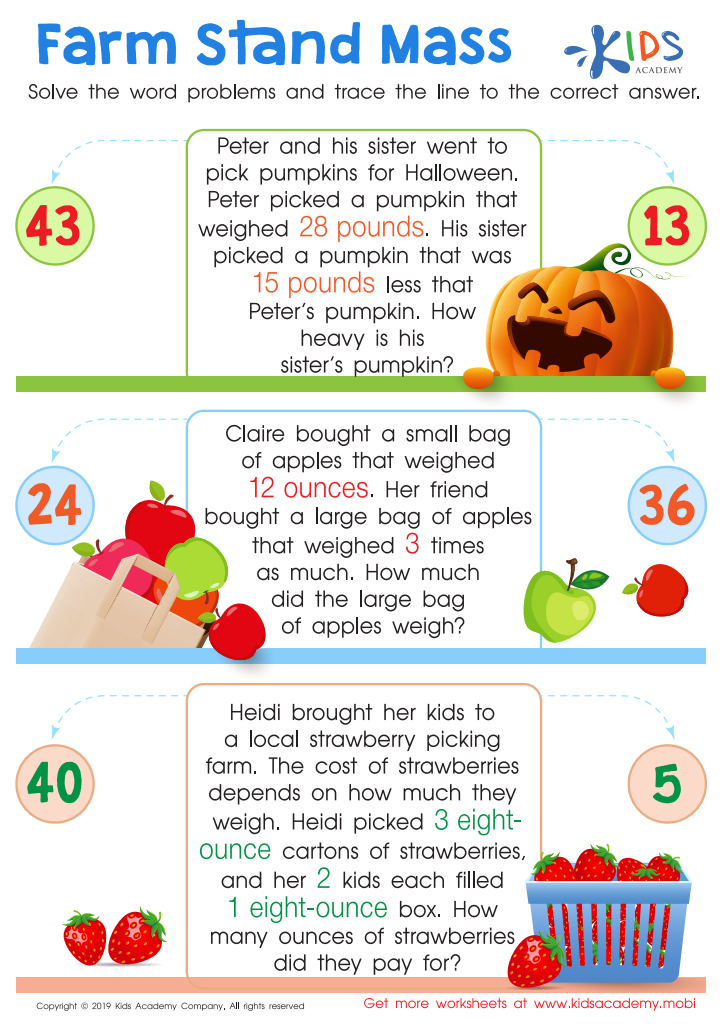

Farm Stand Mass Worksheet
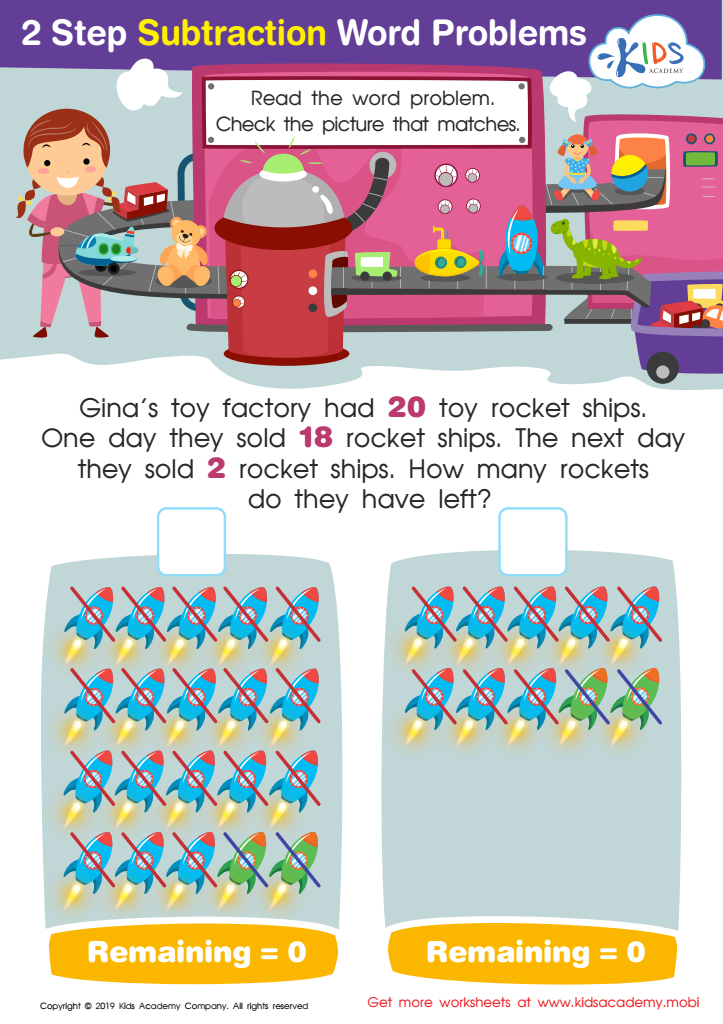

Step Subtraction Word Problems Worksheet
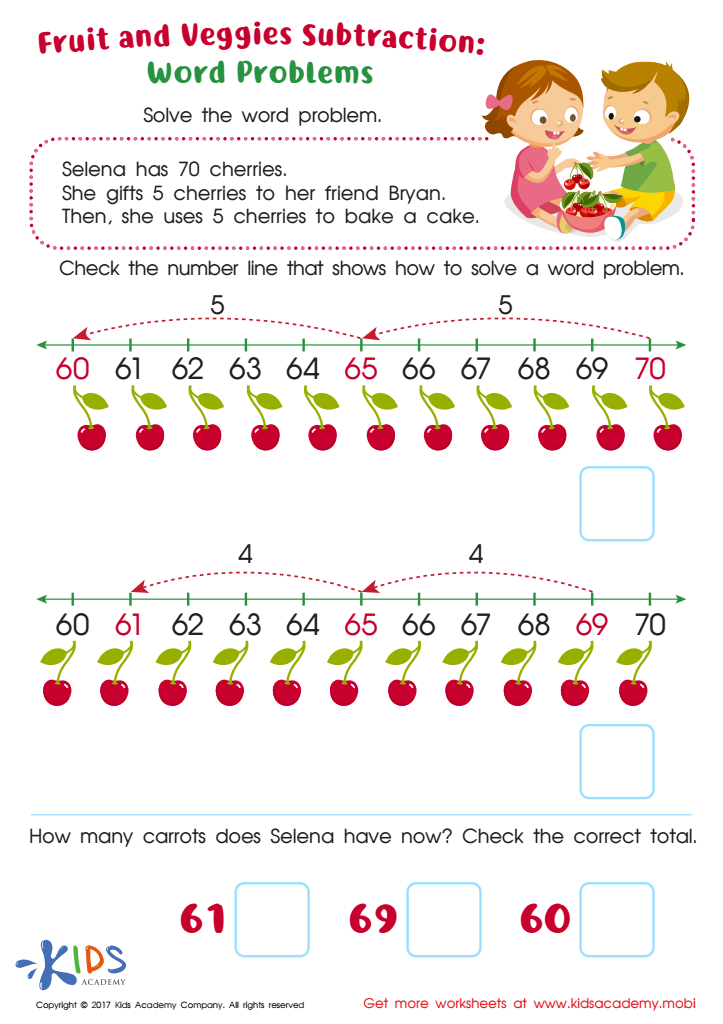

Subtraction Word Problems Free Printable
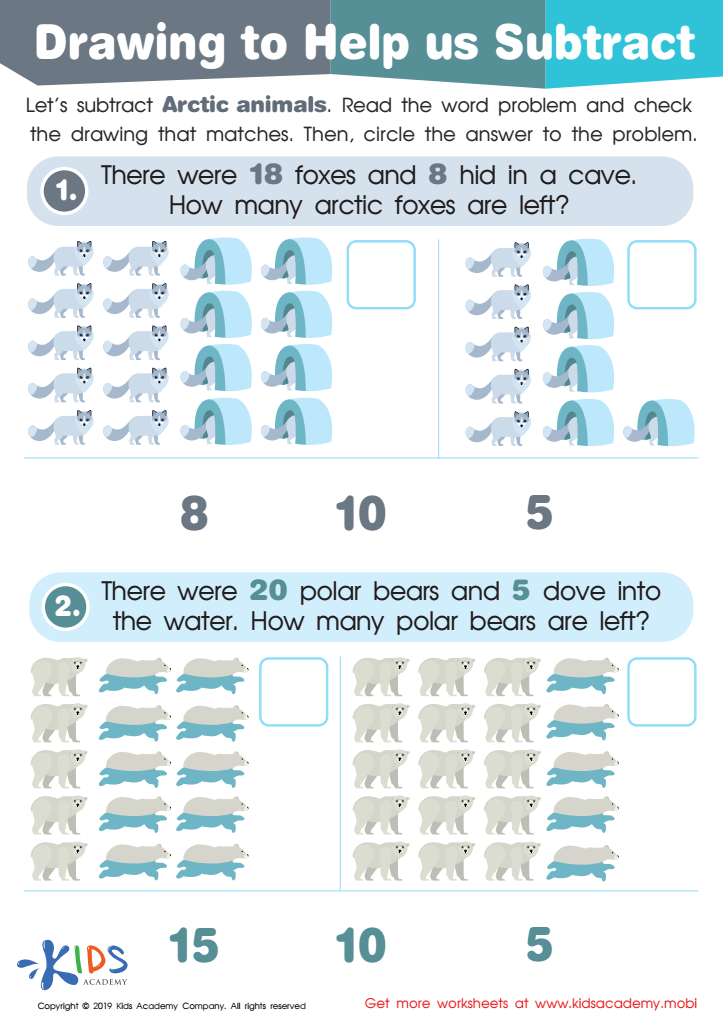

Drawing to Help Us Subtract Worksheet


Solve the Problem: Trick–or–treating Worksheet
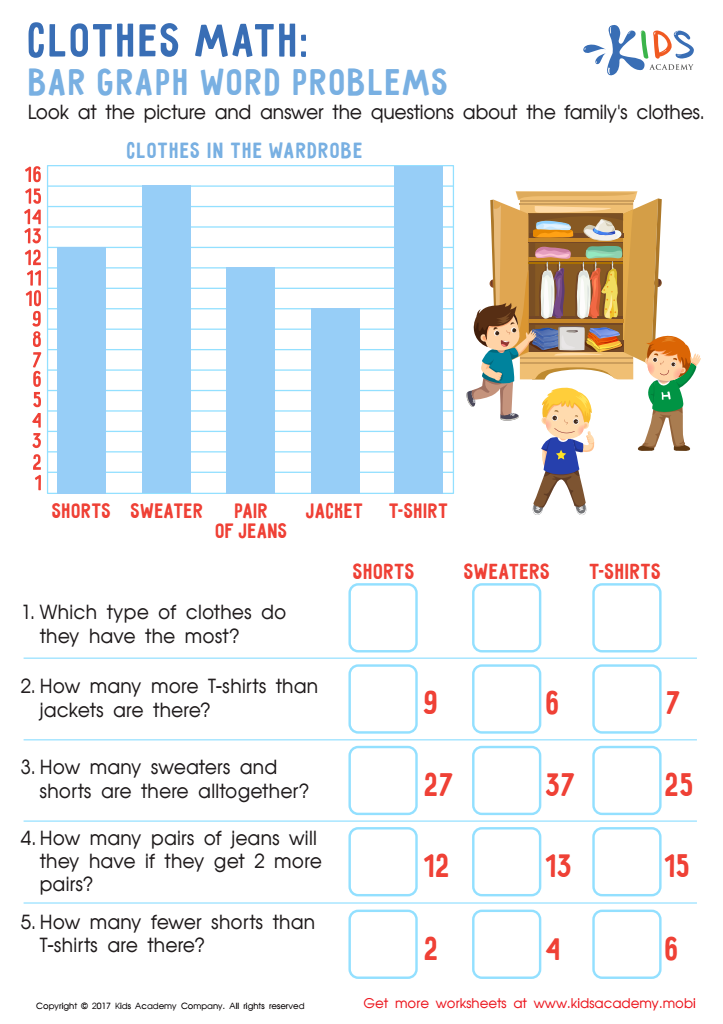

Clothes Math: Bar Graph Word Problems Worksheet
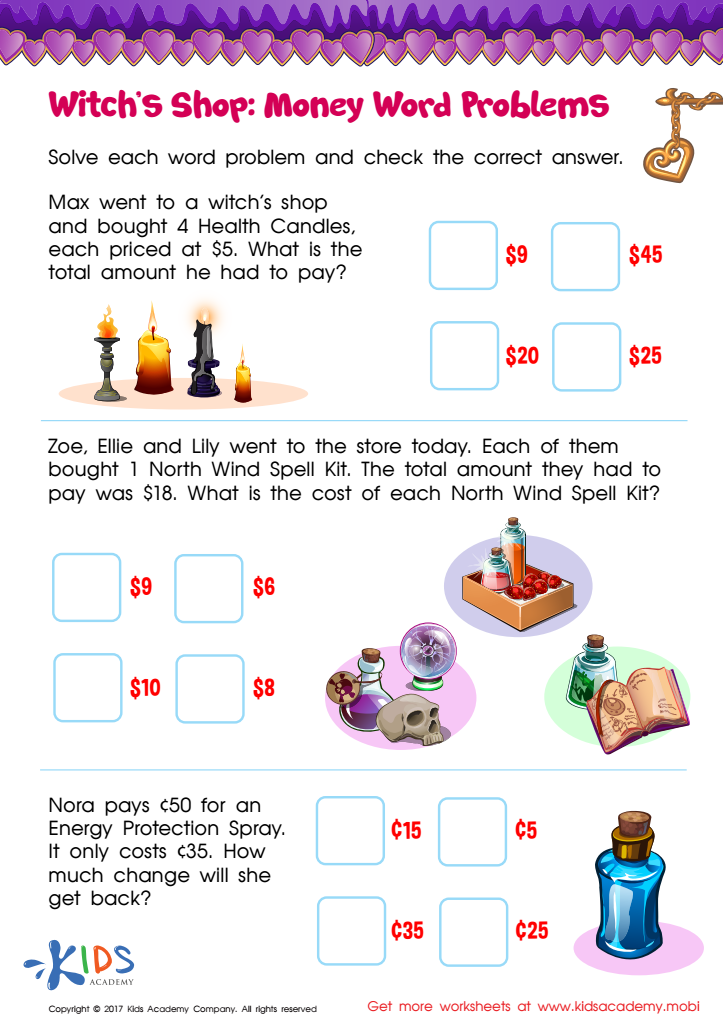

Money Word Problems Printable
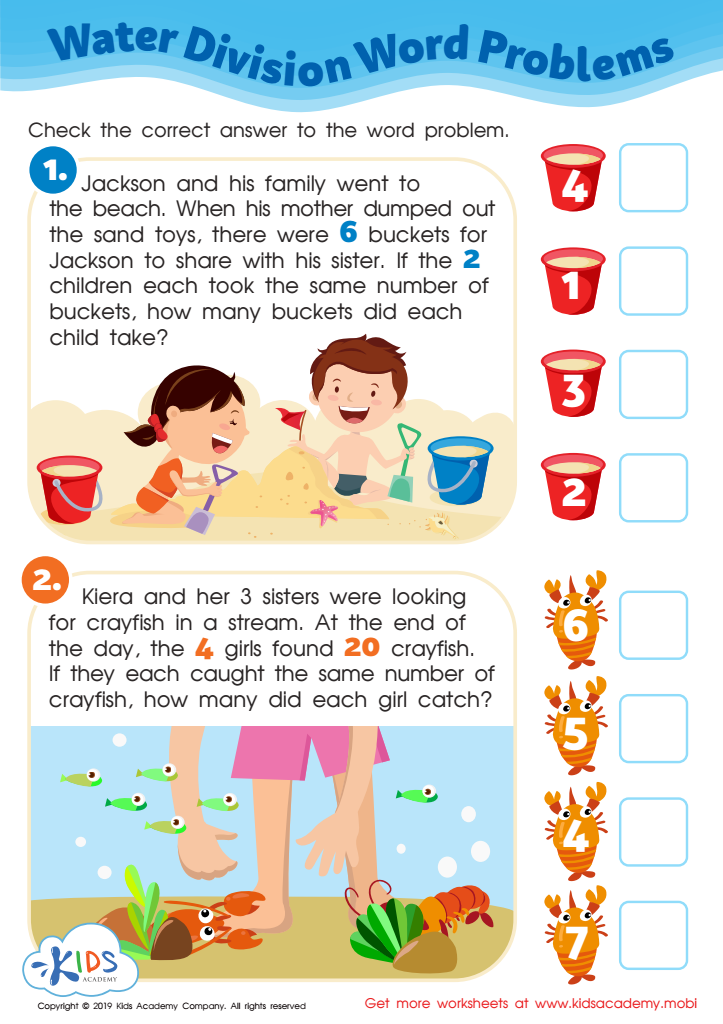

Water Division Word Problems Worksheet
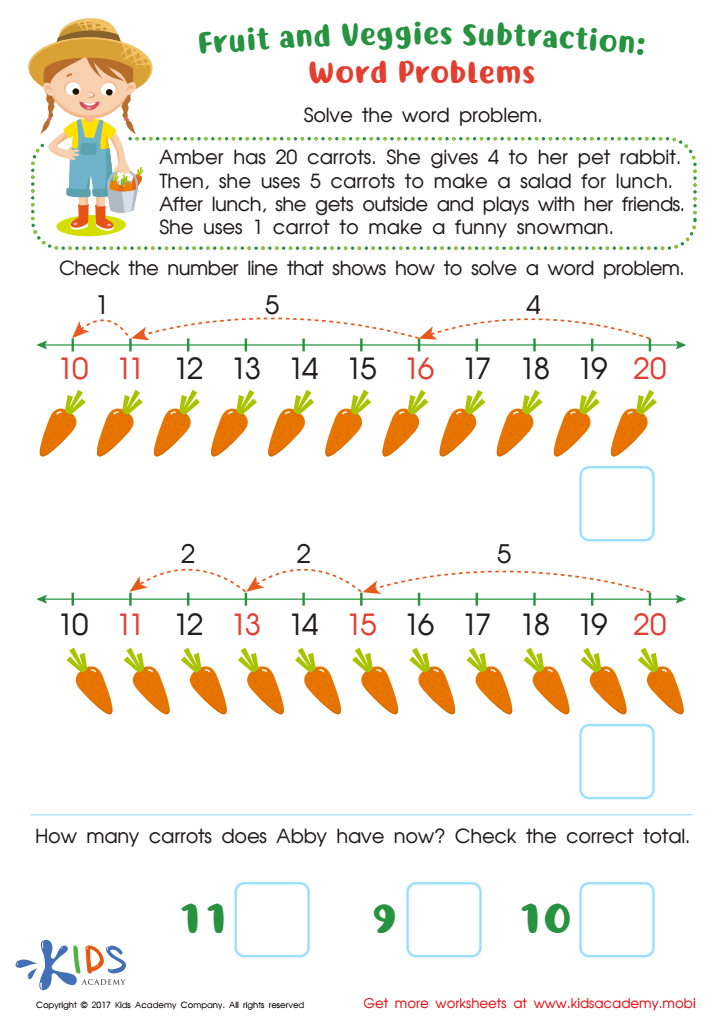

Subtraction Word Problems Printable


Word Problems: Assessment 2 Worksheet


Addition and Subtraction: Word Problems Worksheet


Dividing with Landforms
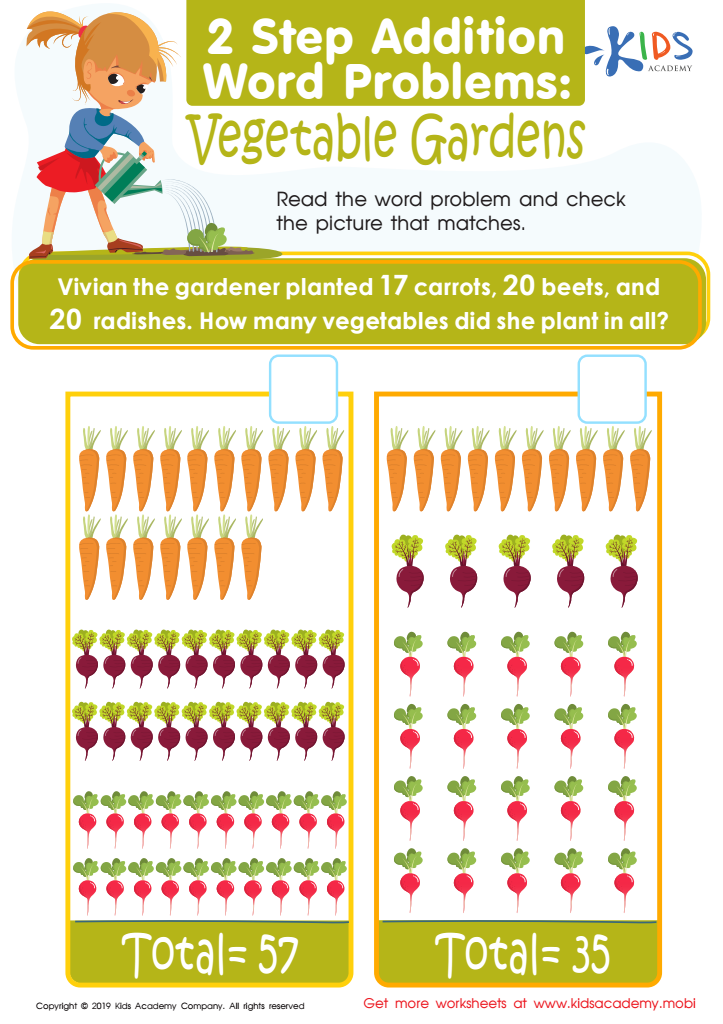

Vegetable Gardens Worksheet
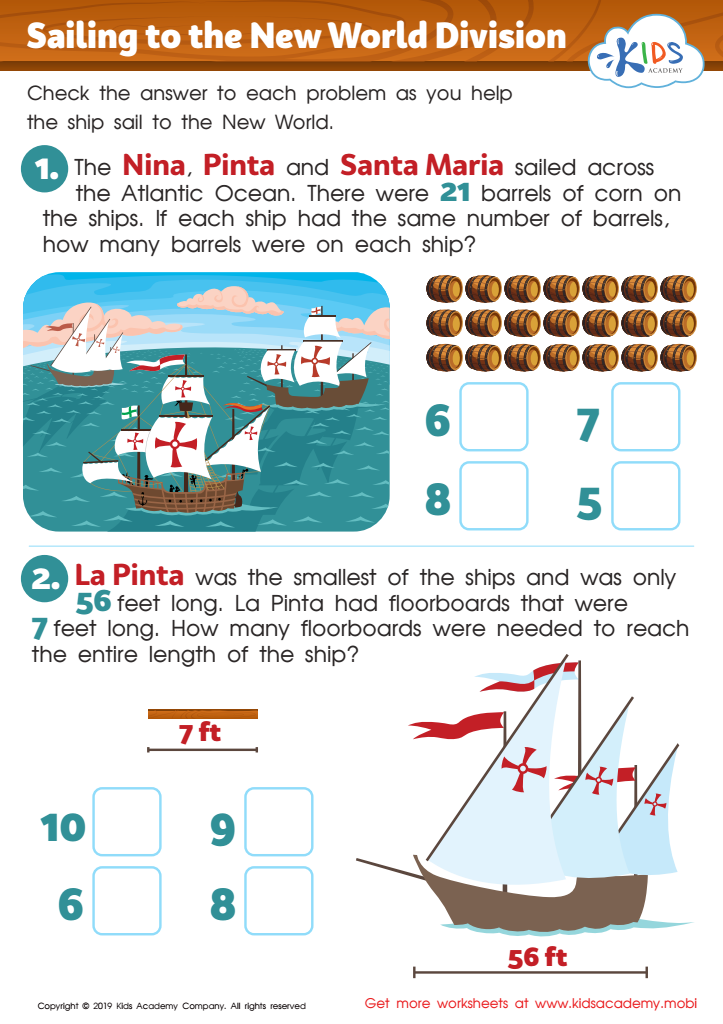

Sailing to the New World Division Worksheet
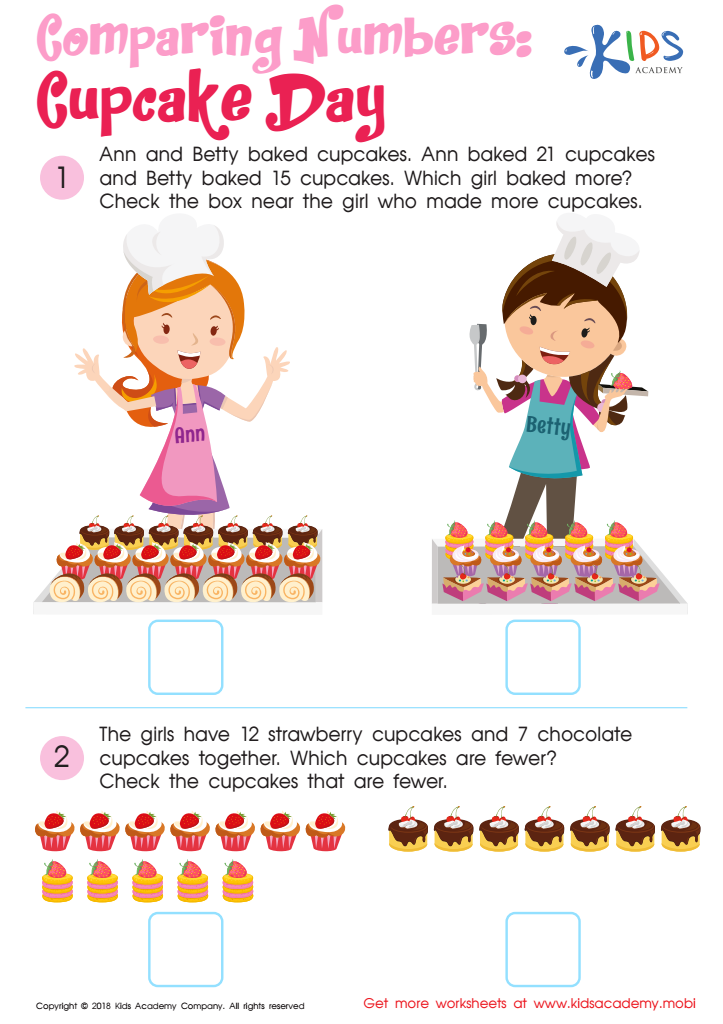

Cupcake Day Worksheet
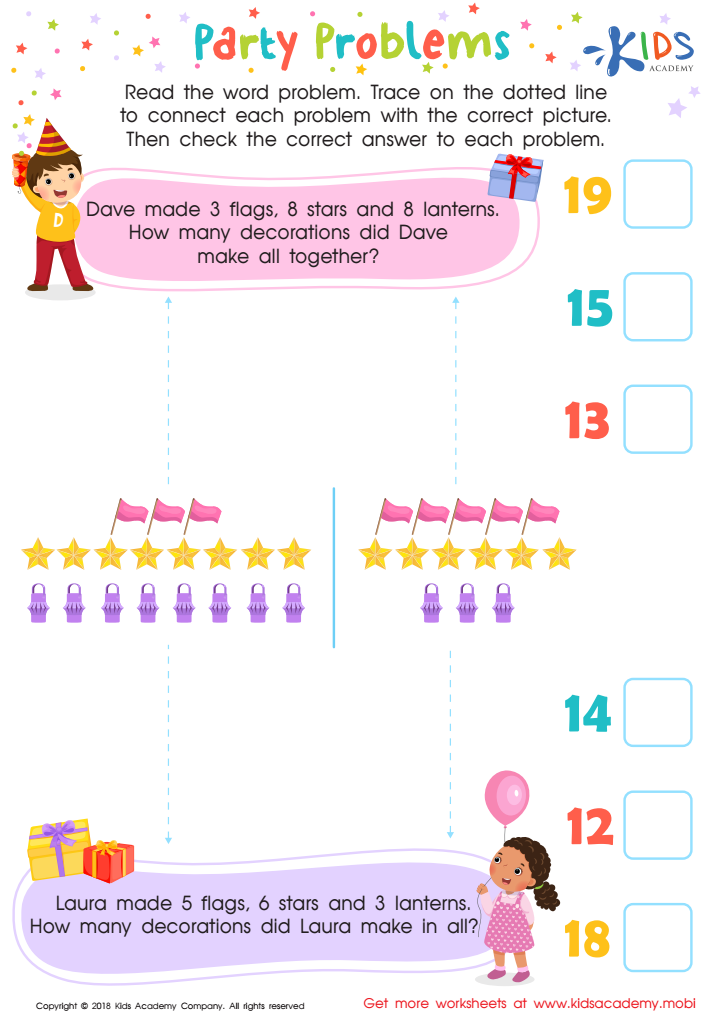

Party Problems Worksheet
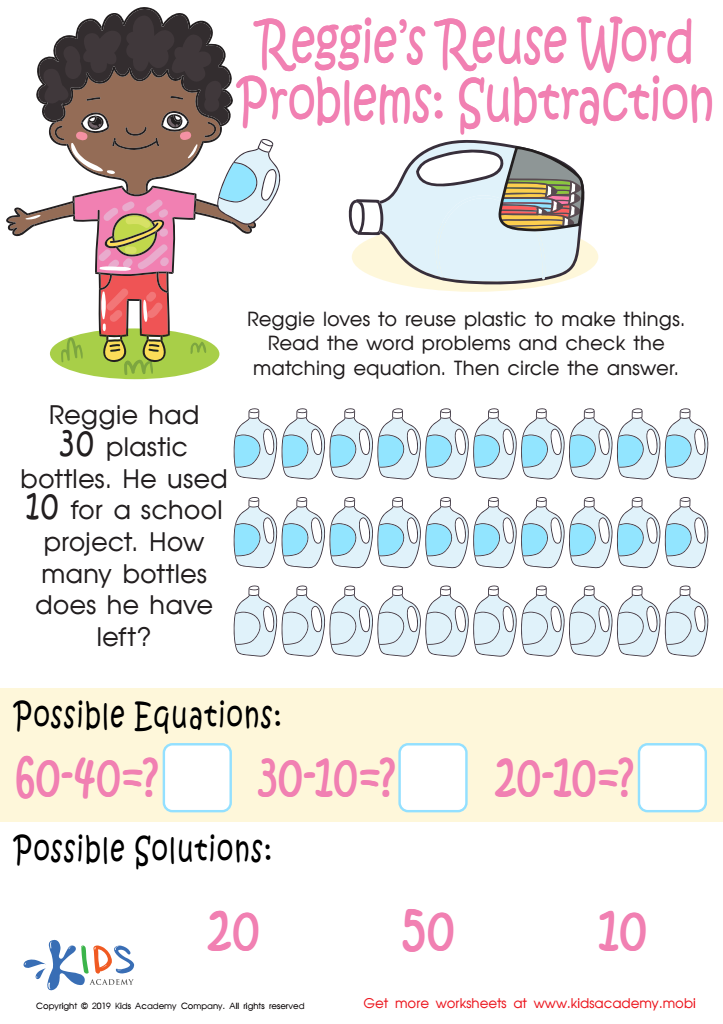

Reggie's Reuse Word Problems: Subtraction Worksheet
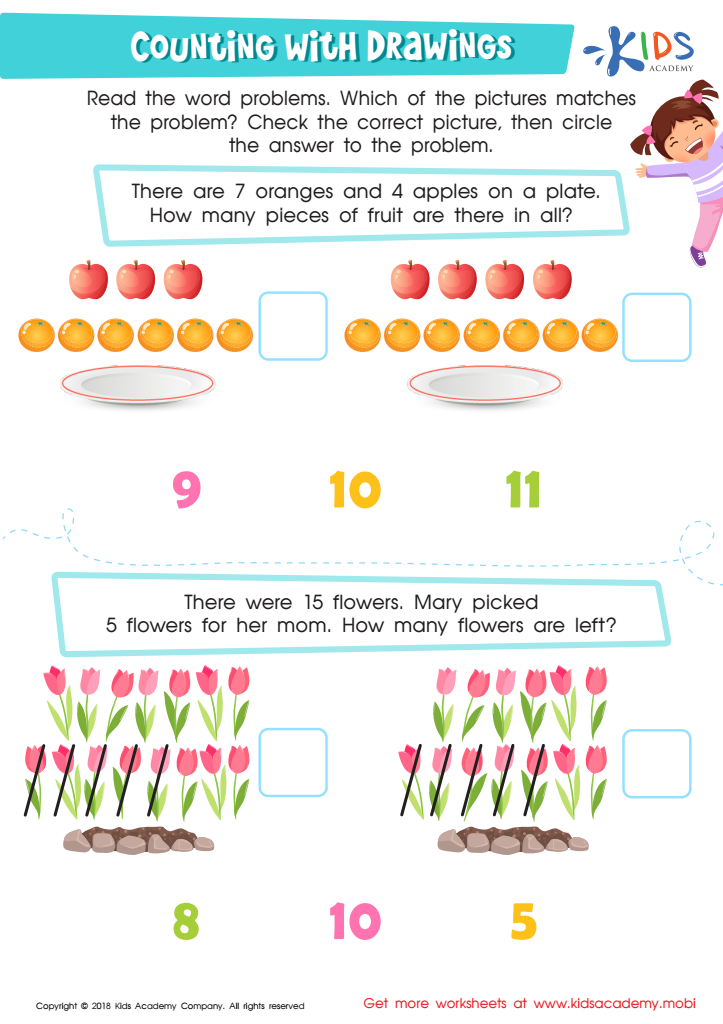

Counting with Drawings:Fruits & Flowers Worksheet
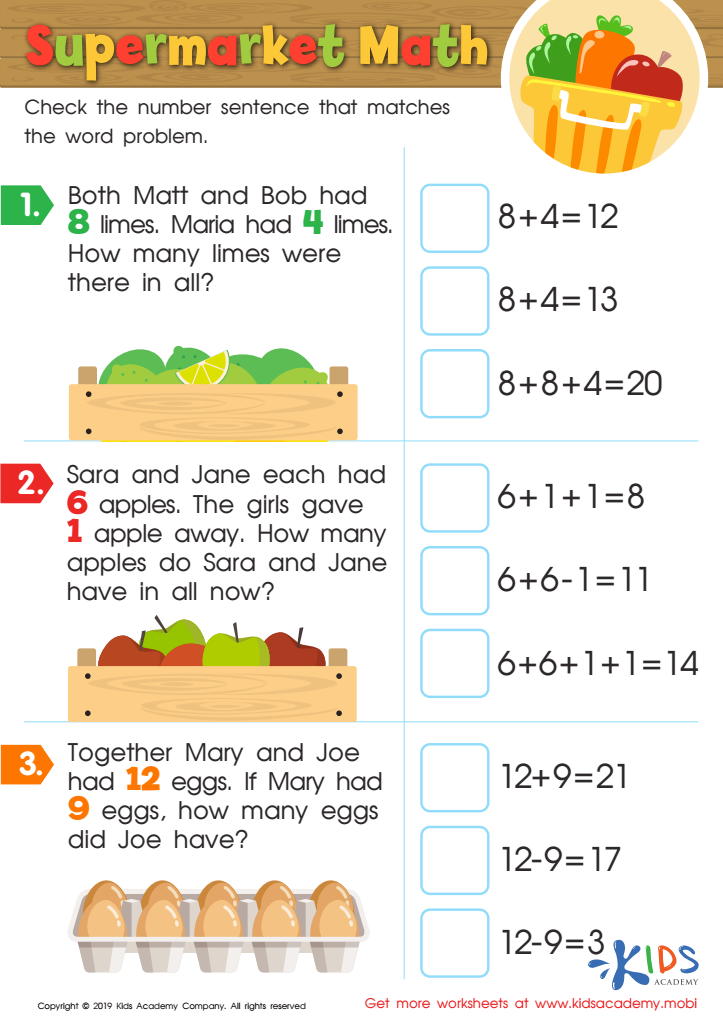

Supermarket Math Worksheet
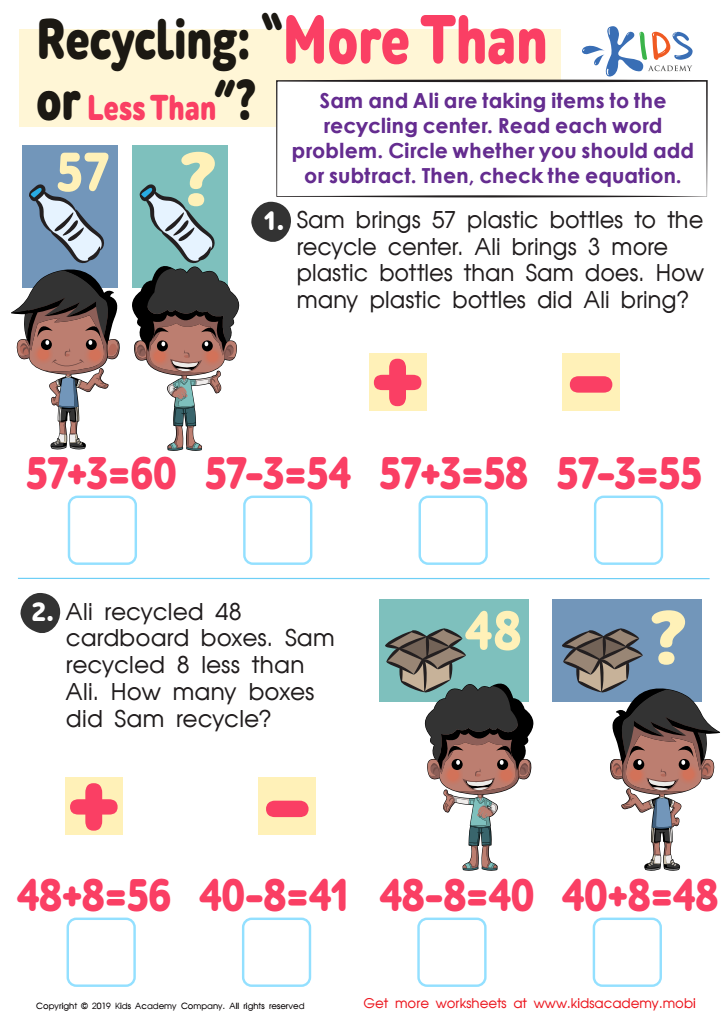

Recycling - More or Less Worksheet
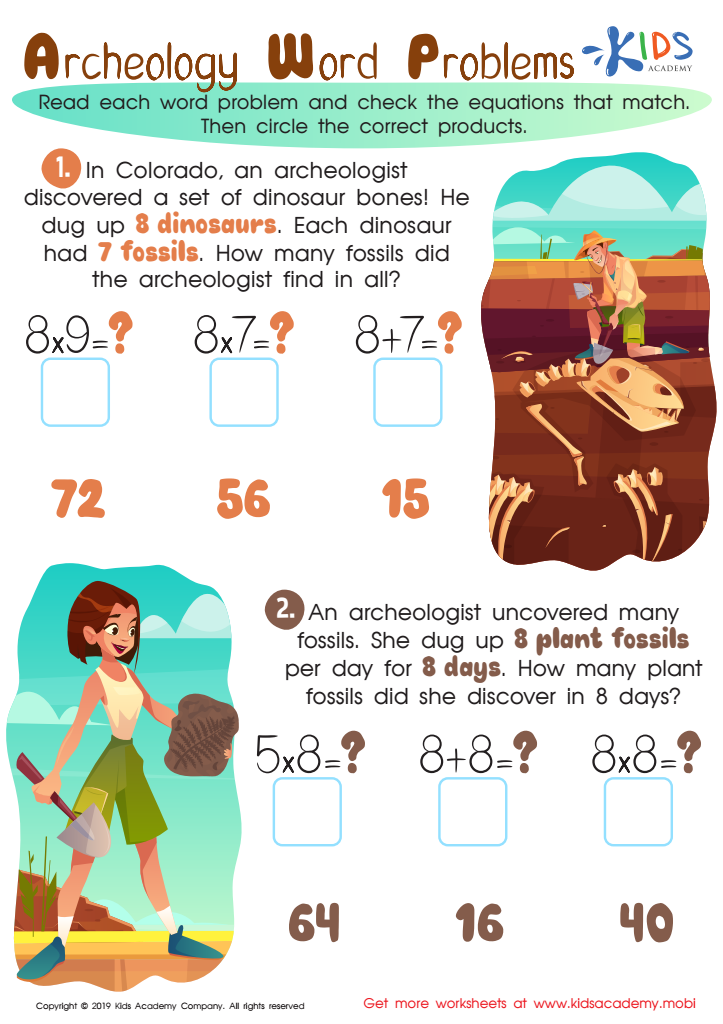

Archeology Word Problems Worksheet
Normal word problems are essential for children aged 3-9 as they build foundational skills in language, math, and critical thinking. Engaging with these problems fosters a deeper understanding of math concepts by connecting mathematical operations to real-life situations. For instance, when children encounter scenarios involving sharing, measuring, or counting, they begin to grasp the relevance and application of mathematics in everyday life.
Parents and teachers should care about these problems because they encourage language development and comprehension. Solving word problems requires children to interpret and mentally visualize the scenario, effectively bridging the gap between linguistic skills and numerical understanding. This dual approach promotes cognitive development, helping young learners improve problem-solving abilities and boost confidence.
Additionally, tackling word problems cultivates persistence and resilience, as children often face challenges that require them to think critically and creatively. This growth mindset is crucial for lifelong learning. By supporting children through normal word problems, parents and teachers foster not only mathematical readiness but also essential skills in communication and analytical thinking. Ultimately, these skills serve as a strong foundation for academic success and everyday functioning, equipping children to face more complex challenges in the future.
 Assign to My Students
Assign to My Students



.jpg)











